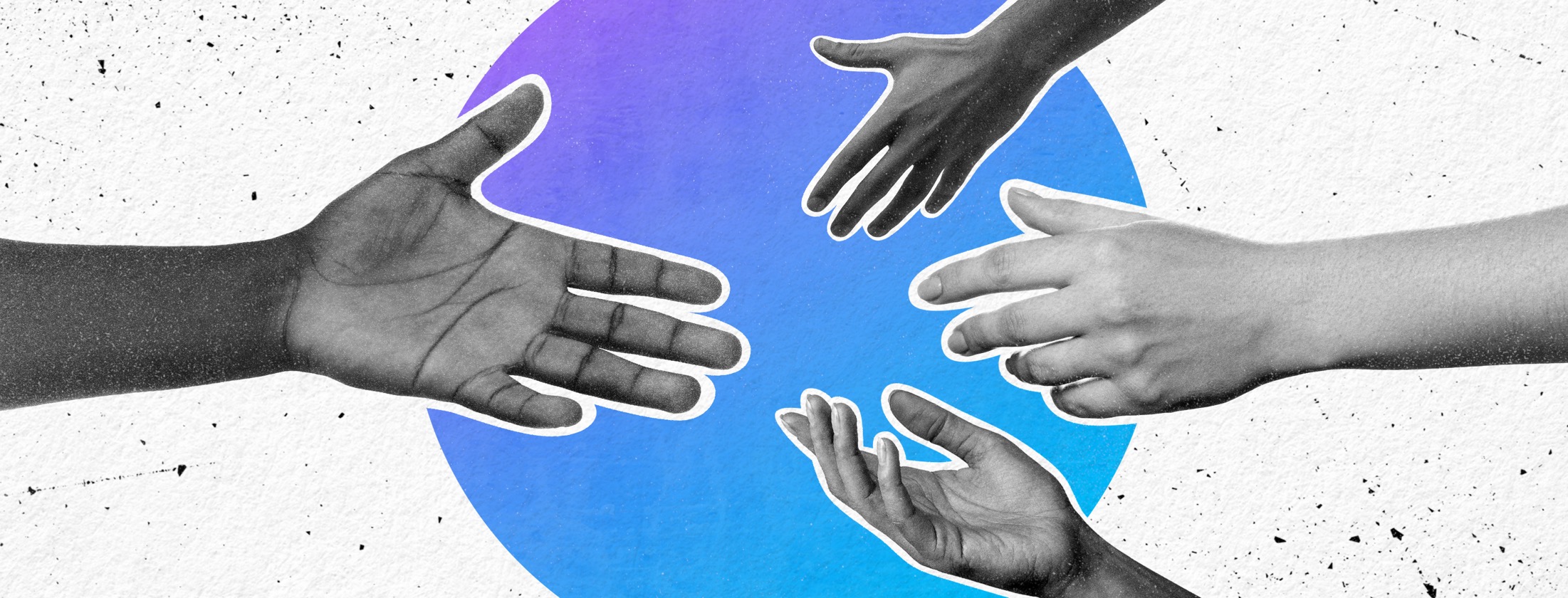People with cystic fibrosis experience an extra dimension to this challenge. In addition to the condition being rare, people with cystic fibrosis are not allowed to be within six feet of each other due to concerns about cross-infection of dangerous germs and bacteria. Even if two people with the condition know each other, connecting in-person is exceedingly difficult.
“I never knew anyone who understood my battles on a personal level,” one Cystic-Fibrosis.com patient leader said. “Until the internet became a place to meet others like me.”
‘As If We All Joined Forces’: Social Health Resources Facilitate Connection, Support
Over the past few decades, the internet has allowed people living with chronic and complex health conditions to find information, connection and support that might not have been readily available. For people with rare conditions, social health – specifically the evolution of social media, virtual support groups and online health communities – has been a true game changer.
For some with rare conditions, connecting with others online with shared experiences has mitigated feelings of loneliness. One Neuromyelitis-Optica.net patient leader said that, by making connections online, she has “been able to make new friends and become more social”; she continues that “even in my darkest times, I find that I am not alone with how I am feeling.” A ThyroidEyeDisease.net patient leader said that talking to other TED patients online and reading about their experiences “truly has made me feel less alone, and I hope it makes others feel less alone too.”
Being able to connect online with people who share their conditions and, as a result, building meaningful relationships has expanded emotional support systems for people with rare diseases. In some cases, patients might find this source of support just as, if not more, helpful than the support they receive from family and friends. For example:
- 43% of Spinal Muscular Atrophy In America 2022 survey respondents said they get more emotional support online than in person
- While 39% of Sleep Disorders In America 2021 respondents living with narcolepsy ranked family as their top source of emotional support (39%), it was followed closely behind by social media (37%) and online support groups (34%)
Social media specifically has helped facilitate connection and support among people with rare conditions. One HSDisease.com patient leader said that connecting with online patient support groups and building her own community on social media has “filled a gap I didn’t know I needed.” She realized she “needed a community of people to whom I didn’t have to explain what I was going through, too. They just inherently understood, and that to me was peace.”
When a ThyroidEyeDisease.net patient leader first began posting on social media about her condition, she was shocked by the “outpouring of comments and messages from people dealing with the exact same thing as me,” and the support and advice that followed. “It was as if we all joined forces,” she said, “and it was a great feeling.”
One Sleep-Disorders.net patient leader with narcolepsy was particularly drawn to Instagram. “There were so many amazing humans who were sharing their stories online,” she said, “and I started to see that I wasn’t alone in my struggle.” Another narcolepsy patient leader, who has joined or followed several support groups on Facebook, Instagram and Twitter, said they helped her “realize how little in-person support I truly have.”
Online Health Communities Represent ‘An Entire World Where I Actually Belonged’
Whether they cater to specific conditions or rare diseases generally, online health communities can be impactful in providing support and connection. In fact, in an analysis of conversations from within its online health communities, published by the Journal of Medical Internet Research, Health Union found that 58% of analyzed comments represented expressions of social support for others, demonstrated through information-sharing, expressions of empathy and encouragement to others.
One Myasthenia-Gravis.com patient leader said that participating in an online health community “can be a real remedy for loneliness when a person is struggling with a condition that affects perhaps 1 in 10,000.” Findings from Health Union’s In America surveys of rare condition communities support this; for example:
- 59% of NMOSD In America 2022 survey respondents said being part of an online health community helps them feel less alone
- 35% of Hidradenitis Suppurativa In America 2021 respondents said online communities help them feel less lonely
Various patient leaders’ comments highlight what makes for an online health community optimized for support and connection. One ThyroidEyeDisease.net patient leader called out the importance of having a “safe space where you feel comfortable talking and asking questions about anything and everything you are going through.” And another patient leader espouses the importance of finding a community, like Myasthenia-Gravis.com, that is “carefully moderated, with a team that meets frequently and has a panel of experts to check out tricky questions.”
One narcolepsy patient leader sums up the overall benefit of participating in a community like Sleep-Disorders.net, saying she felt as if she “had discovered an entire world where I actually belonged.”
Better understanding the health journeys of people living with rare conditions, specifically the challenges they face finding the connection and support they need, will provide the healthcare industry with what they need to provide necessary resources. Social health creates space for patients to discuss their unique challenges, allowing the healthcare industry to better address their needs.
Partner with Health Union to better understand these insights and to expertly navigate the expansive world of social health – including scalable, socially driven online health communities, like the newly launched RareDisease.net – and comprehensive, quantitative, condition-specific data.






